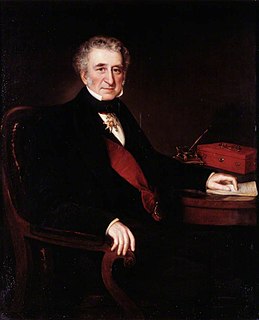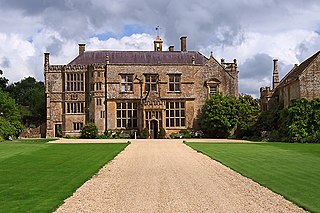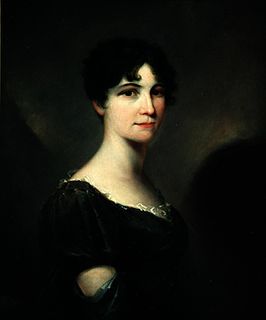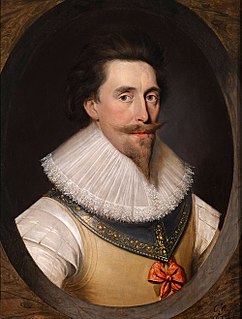Fane is a surname. [nb 1]
Fane is a surname. [nb 1]

Earl of Westmorland is a title that has been created twice in the Peerage of England. The title was first created in 1397 for Ralph Neville. It was forfeited in 1571 by Charles Neville, 6th Earl of Westmorland, for leading the Rising of the North. It was revived in 1624 in favour of Sir Francis Fane, whose mother, Mary Neville, was a descendant of a younger son of the first Earl. The first Earl of the first creation had already become Baron Neville de Raby, and that was a subsidiary title for his successors. The current Earl holds the subsidiary title Baron Burghersh (1624).

John Fane, 11th Earl of Westmorland, styled Lord Burghersh until 1841, was a British soldier, politician, diplomat, composer and musician.

Brympton d'Evercy, a grade I listed manor house near Yeovil in the county of Somerset, England, has been called the most beautiful in England. In 1927 the British magazine Country Life devoted three articles to it, in which Christopher Hussey, near the start of a 50-year career as an architectural authority, termed it "the one which created the greatest impression and summarises so exquisitely English country life qualities." His articles remain the only detailed account of the house, which has belonged to six families: the D'Evercys, Stourtons, Sydenhams, Fanes, Weeks (1992–2008), and Glossops.

Harriet Arbuthnot was an early 19th-century English diarist, social observer and political hostess on behalf of the Tory party. During the 1820s she was the closest woman friend of the hero of Waterloo and British Prime Minister, the 1st Duke of Wellington. She maintained a long correspondence and association with the Duke, all of which she recorded in her diaries, which are consequently extensively used in all authoritative biographies of the Duke of Wellington.

Thomas Fane, 8th Earl of Westmorland was a British MP for Lyme Regis and a lord commissioner of trade. He was an ancestor of the writer George Orwell.

John Fane, 7th Earl of Westmorland, styled The Honourable John Fane from 1691 to 1733 and Lord Catherlough from 1733 to 1736, of Mereworth Castle in Kent, was a British Army officer and politician who sat in the House of Commons in three separate stretches between 1708 and 1734.

Francis Fane, 1st Earl of Westmorland, of Mereworth in Kent and of Apethorpe in Northamptonshire was an English landowner and politician who sat in the House of Commons between 1601 and 1624 and then was raised to the Peerage as Earl of Westmorland.

Mildmay Fane, 2nd Earl of Westmorland, styled Lord le Despenser between 1624 and 1628, was an English nobleman, politician and writer.
Henry Fane may refer to:
Francis Fane may refer to:

Henry Fane was a British politician who sat in the House of Commons for 30 years between 1772 and 1802.

Fulbeck is a small village and civil parish in the South Kesteven district of Lincolnshire, England. The population taken at the 2011 census was 513. The village is on the A607, 9 miles (14 km) north from Grantham and 8 miles (13 km) north-west from Sleaford. To the north is Leadenham, and to the south, Caythorpe.
Fane is an English surname of Welsh origins that belongs to a family who have produced a number of notable members. The family originated with Ivon Vane, who was a Welsh landowner and mercenary captain in the service of the Black Prince. Ivon Vane or John Fane, as he was known in English, was one of three captains who captured King John II of France at the battle of Poitiers 1356. He was knighted and shared in the ransom monies, which made him very wealthy. He settled in Kent and founded the two notable families of Fane, whose members became the Earls of Westmoreland, and Vane, who became the Earls of Darlington. Both families have golden gauntlets on their crest in memory of the surrender of King John.
Vere may refer to:

Vere Fane, 4th Earl of Westmorland, styled The Honourable Vere Fane from 1644 to 1661 and Sir Vere Fane from 1661 to 1691, was a British peer and Member of Parliament for Peterborough and twice for Kent.
Vere Fane may refer to:
Sir Francis Fane, KB, of Fulbeck, in Lincolnshire, was a writer of stage plays and poems and a courtier in the Restoration court of Charles II of England.

Sir Francis Fane of Fulbeck supported the Royalist cause during the English Civil War.

Mildmay Fane was a British politician who sat in the House of Commons for 8 months in 1715, before his early death.

Mary Mildmay, or Mary Fane, Countess of Westmorland continued her mother Grace Mildmay's interest in physic and was a significant author of spiritual guidance and writer of letters.